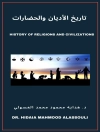In ‘The Ninety-five Theses, ‘ Martin Luther presents a seminal document that ignited the Protestant Reformation and fundamentally altered the course of Western Christianity. Composed in 1517, this manifesto critiques the Catholic Church’s practices, particularly the sale of indulgences, and argues for a return to scriptural authority and faith-based salvation. Luther’s direct, polemical style elevates theological discourse to the public sphere, utilizing accessible language that resonates with the layperson while challenging ecclesiastical corruption. This work is not merely a list of grievances but a radical rethinking of spiritual and ecclesiastical power, making it a cornerstone of Reformation literature and a hallmark of early modern thought. Martin Luther (1483-1546) was a German monk, theologian, and seminal figure of the Reformation, whose personal struggle for salvation and moral integrity led him to challenge the prevailing doctrines of the Church. His experiences within the monastic system and his profound engagement with biblical texts catalyzed his critical insights, fostering a commitment to individual faith and interpretation. This transformative period in his life birthed the The Theses, which sought not only to reform the Church but also to liberate believers from ecclesiastical authoritarianism. For readers interested in the dynamics of faith, power, and reformative thought, ‘The Ninety-five Theses’ remains a crucial text. It not only contextualizes the tensions of the 16th century but also invites contemporary readers to reflect on their own beliefs regarding authority and spirituality, making it essential for a deeper understanding of religious history and theological evolution.
Sobre o autor
Martin Luther (1483–1546) was a seminal figure in the Protestant Reformation, an era that forever changed the landscape of Christianity. Born in Eisleben, Saxony, he was an Augustinian monk, theologian, and university professor at Wittenberg. His profound discontent with the corruption he perceived in the Catholic Church led to his writing of ‘The Ninety-five Theses’ in 1517, a document that challenged the Church’s sale of indulgences and questioned the foundations of its authority. This act is often symbolically linked to the start of the Reformation. Luther’s translation of the Bible into the vernacular German instead of Latin made the scriptures more accessible to the common people, fostering a wave of religious enlightenment and literacy. Luther’s literary style was marked by directness and clear, forceful argumentation, often infused with a robust wit. His works encompass a vast array of theological treatises, sermons, and essays. His commitment to salvation through faith alone and the authority of the scriptures became the doctrinal cornerstone for many Protestant traditions. Beyond his 95 Theses, Martin Luther’s other influential works include ‘On the Bondage of the Will’ and ‘Luther’s Large Catechism’ which continued to shape theological discourse and exert a profound influence on Christian thought and Western culture.




